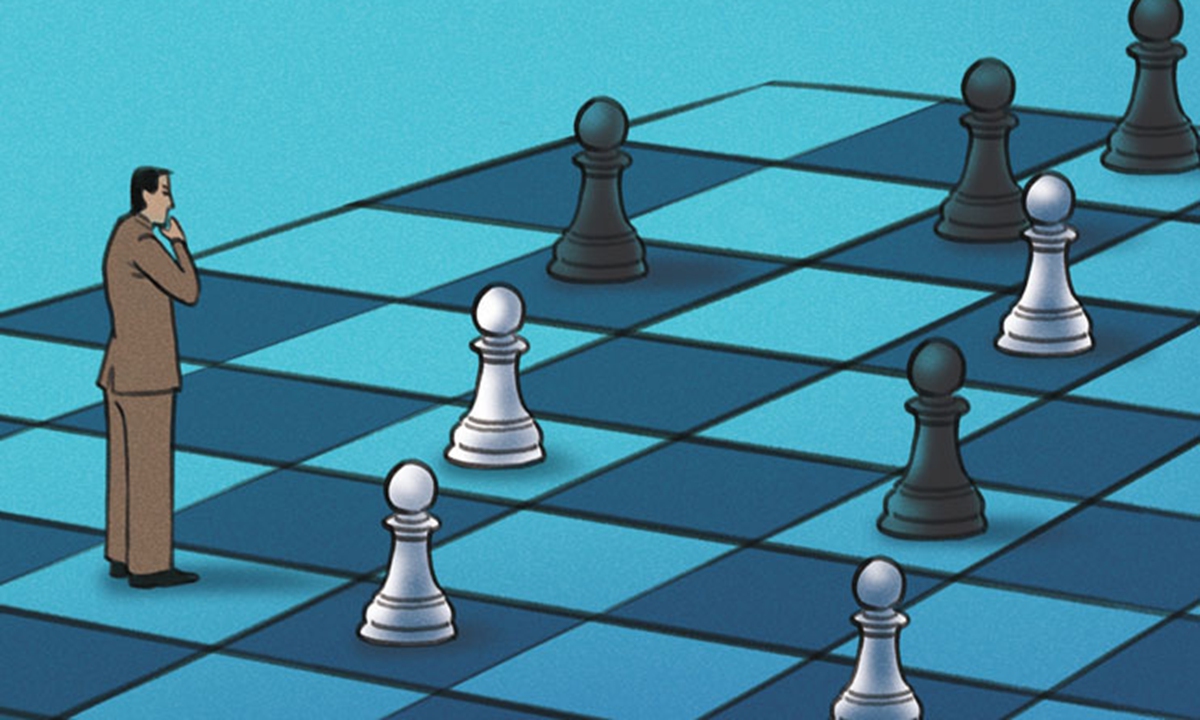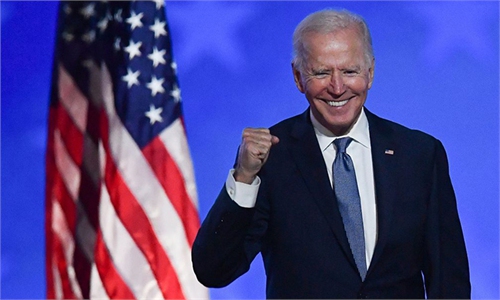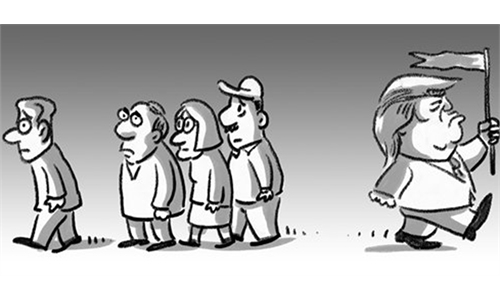
Illustration: Liu Rui/GT
The Inter-Parliamentary Alliance on China (IPAC), a Western value-based anti-China alliance, tweeted on Tuesday that some of its members urged their foreign ministers to issue statements to bolster Australia against China's attempt at "bullying and coercion." It said those petitioned include Canada, the Czech Republic, Denmark, the EU, France, Germany, Italy, New Zealand and the UK.
Formed in June, the IPAC is made up of more than 100 MPs from 19 Western countries, with an anti-China mission. It is a platform for a handful of anti-China forces in the West to collude and jointly attack China over various China-related issues. The deterioration in China-Australia relations just provided them another excuse to smear China.
The Sydney Morning Herald, a Sydney-based media outlet, reported the parliamentarians said the Chinese government's attempts to "threaten, bully and coerce Australia into acquiescing to its political demands" were a threat to "democratic countries everywhere." But recent measures taken by the Chinese authorities on some imported products from Australia are in line with China's laws and regulations and international policies. They are also responsible steps to safeguard the interests of domestic industries and consumers. Furthermore, Australia has repeatedly provoked China especially this year. It is Australia that is responsible for deteriorating bilateral ties with China. On the contrary, the Chinese government has never "threatened, bullied and coerced" Australia.
Dressing Australia up as a victim and pointing an accusing finger at China by the IPAC are meant to confound the public. Portraying China's legitimate and rational economic measures as a threat to "democratic countries everywhere" sounds more like a fantasy. These are merely their narratives to resonate with Western society, in a bid to build a united front against China in the West.
This time, the IPAC attempted to construct such an anti-China united front among policymakers in these Western countries. How these countries will respond to this anti-China alliance will draw the attention of the international community. However, lawmakers participating in the IPAC tend to be right-wing populists with prejudice against China, and they are still a minority in their parliaments. Hence, their impact on the policymakers of their countries will be highly restrained. Even if they make full use of communication approaches to spread anti-China voices, it will not make many waves.
Zhao Junjie, a research fellow at the Institute of European Studies of the Chinese Academy of Social Sciences, told the Global Times Wednesday that China should pay attention and remain vigilant to this alliance, but does not need to worry too much. International relations are guided by pursuing national interests. Even in the West, every country diverges in terms of their national interests. It is difficult for them to reach a consensus on how to deal with China. Although Western countries underline values, they generally remain independent on their China policy.
Zhao said the establishment of the IPAC and its anti-China rhetoric and moves signal China's rise has brought about anxiety in the West. Especially when the novel coronavirus pandemic spreads throughout the world, China's performance in the battle significantly excels the West, which seems to be reluctant to accept it and has always prided itself on its advantage in its political system.
Additionally, even though China has repeatedly emphasized that China's rise is peaceful, not a threat to any country, the West still worries a rising China will challenge its hegemon and the international norms and rules set by it.
In the face of this alliance's anti-China narratives mainly hyped on public opinion, what China has to do is to continue to maintain friendly relations with Western countries and deepen cooperation with them. This will help make these countries have a clearer awareness that China is a partner, rather than a "threat." In this scenario, any incitement by this alliance will be in vain.



